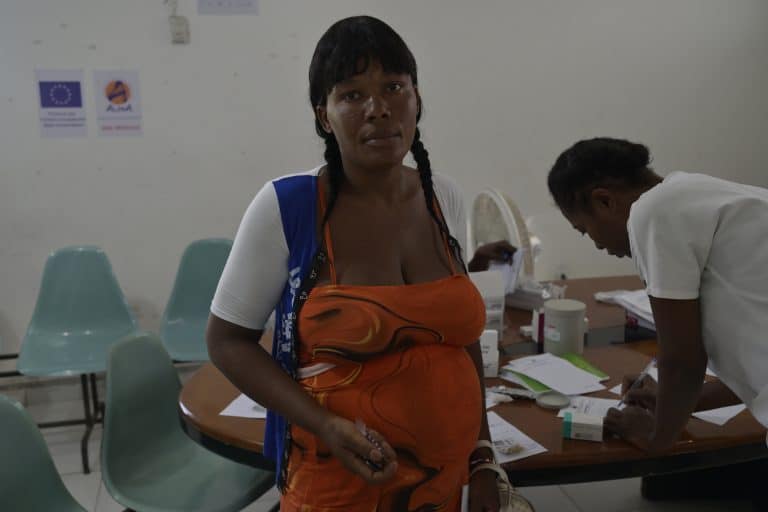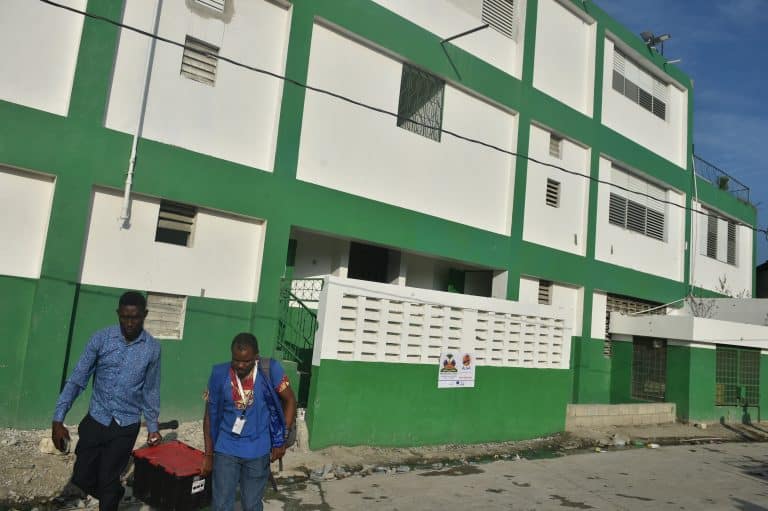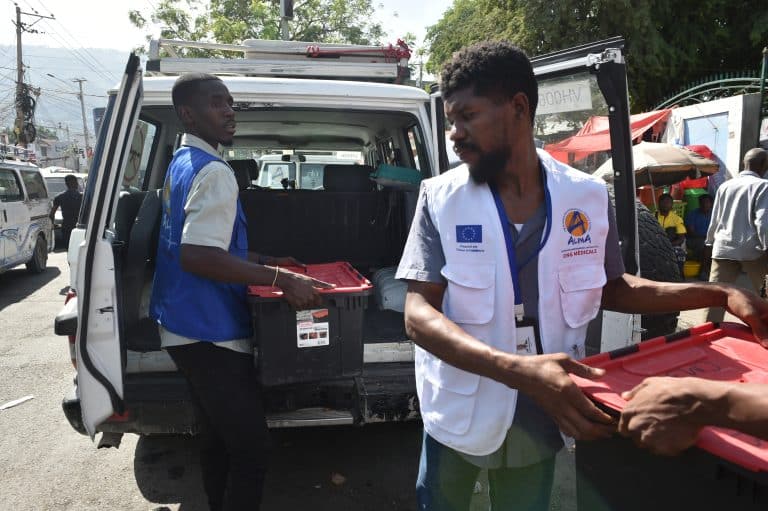Our Environmental Action
As a medical emergency and research organization, ALIMA intervenes to ensure access to healthcare for the most vulnerable populations. This mission places us at the forefront of the major challenges of the 21st century, including social and economic crises, armed conflicts, increased migration, and above all, climate change.
Climate Change: A Healthcare Challenge
Climate change is reshaping the contexts in which our teams operate in the field:
- Evolving diseases: Random and unpredictable shifts in the distribution of existing diseases and emergence of new ones.
- Strained infrastructure: Natural disasters, reliance on fossil fuels, power cuts, soaring prices and disrupted supply chains.
- Rising humanitarian needs: Populations weakened by already precarious contexts.
To address these challenges, ALIMA anticipates climate developments while maintaining the highest standard of care.
Our Actions to Mitigate the Impact of Climate Change on Health
Protecting Communities and Building Resilience
ALIMA provides care to the most vulnerable populations, while helping communities and healthcare systems adapt. Some of our concrete initiatives include:
- Medical staff training: Strengthening skills to better respond to local environmental health challenges.
- Access to solar energy: Introducing solar systems in healthcare facilities. For example, solar-powered oxygen cylinder filling stations have been installed in Burkina Faso, Guinea, and Mali, providing a life-saving solution in remote areas, and solar-powered blood banks have been set up in Chad to increase transfusion capacity.
- Technological innovations: ALIMA trains local teams in the use and maintenance of equipment to ensure its sustainability.
Reducing our Environmental Footprint
ALIMA integrates resilience into all its operations, by committing to a radical transformation of its practices:
- 2030 Environmental Roadmap: Ambitious carbon reduction and sustainable practices.
- Concrete actions:
- Transition to renewable energy in healthcare facilities.
- Optimising travel (reducing flights, developing sea freight).
- Implementing responsible procurement criteria.
- Improving waste management.
Pilot Projects and Strategic Partnerships
Since 2022, several pilot projects have been launched to innovate and demonstrate the effectiveness of our environmental strategies:
- ECOBOOST and SMARTE: Environmental training and planning.
- PLASTIK: Recovery of medical and nutritional plastic waste.
- CRESH: Adapting hospitals in the Sahel to climate challenges.
- CLEAN: Deploying solar equipment and reducing biomedical waste in hospitals in Guinea and Niger.
These projects, supported by partners such as the Climate Action Accelerator and Electriciens sans frontières, combine innovation, technical expertise, and concrete impact.
Results and Future Outlook
ALIMA regularly publishes reports to track its progress:
We will continue to act with ambition and responsibility to protect the health of the most vulnerable populations while protecting the planet for future generations.
On the ground
Our latest news

Chancerelles: A Historic Maternity Hospital Reborn Amid the Crisis
In Cité Soleil, a municipality of the Port-au-Prince metropolitan area weakened by years of armed violence and the absence of public services, the Isaïe maternity

Port-au-Prince: In Cité Soleil, the CHAPI Hospital Comes Back to Life After Years of Neglect
In Cité Soleil, one of Haiti’s most vulnerable urban contexts, the CHAPI Hospital, located in the Boston area, is coming back to life after being

In Port-au-Prince Camps, Access to Healthcare Remains a Major Challenge for Displaced Populations
In Port-au-Prince, thanks to its mobile clinics and a strong network of community health workers, ALIMA is restoring regular access to healthcare for displaced populations,


